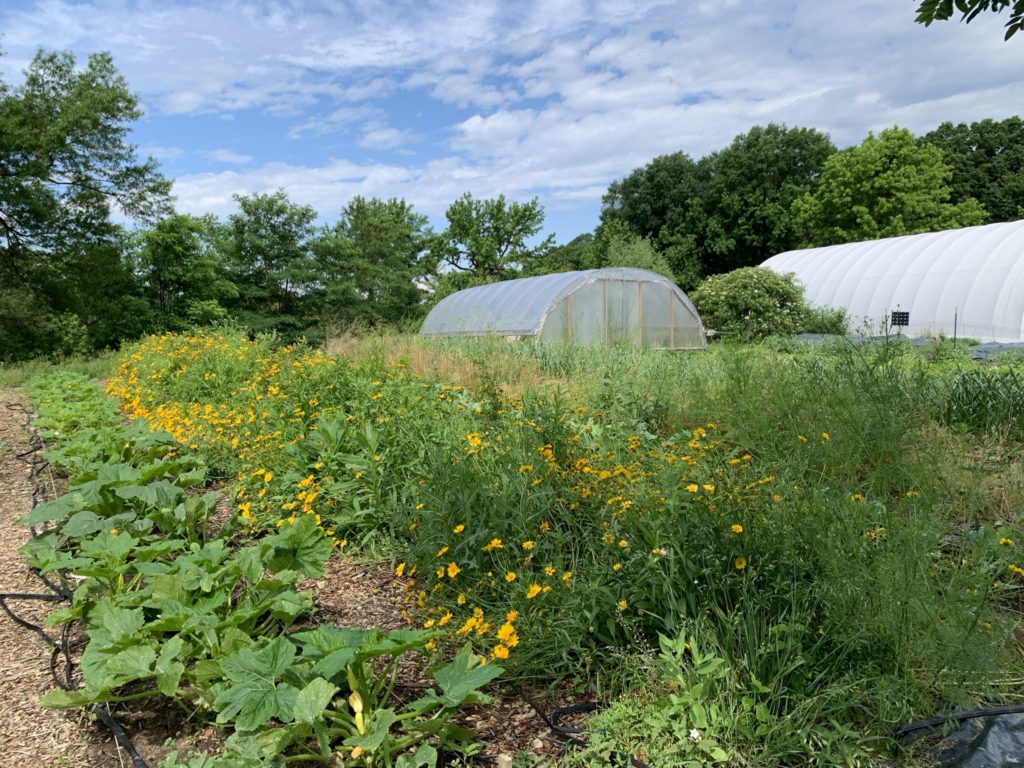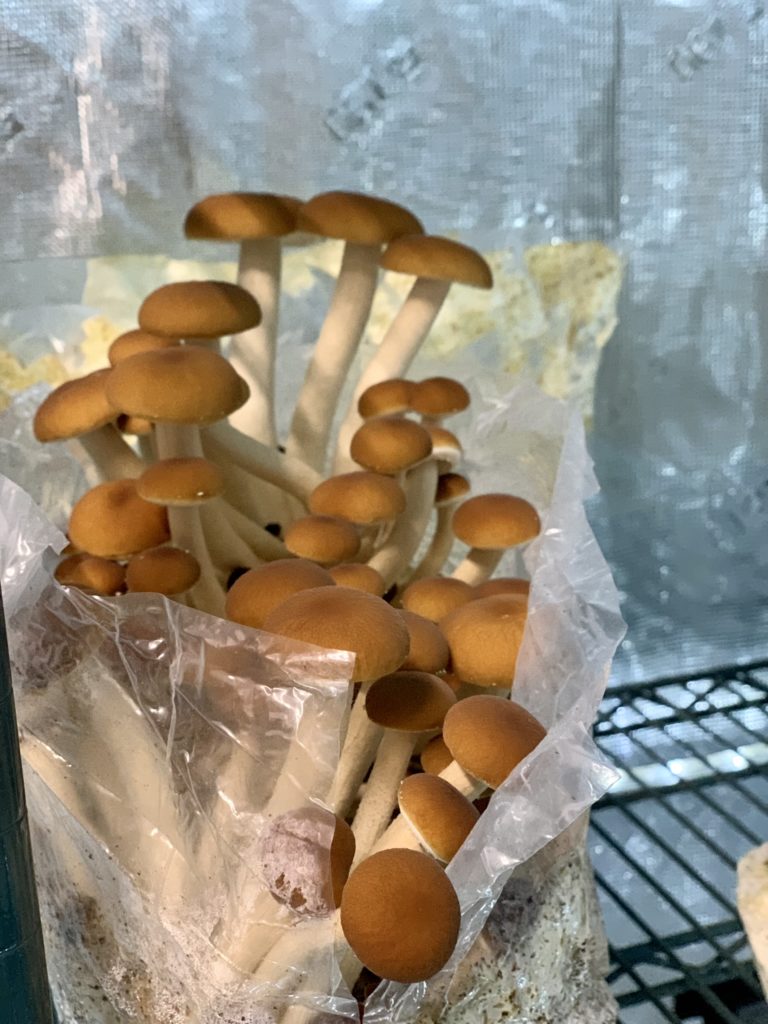Introduction to Urban Agriculture

Squash and pollinator habitat at ECO City Farms, Bladensburg
As with rural farms, urban farms are for-profit or non-profit enterprises growing, raising and/or processing agricultural products commercially. The Food and Agriculture Organization defines urban agriculture as “as the growing of plants and the raising of animals within and around cities.” Across the globe, urban and peri-urban agriculture provides food and value-added agricultural products from different types of table crops (i.e. fruits, vegetables, mushrooms), livestock, and ornamental and medicinal plants.
Urban agriculture provides a variety of benefits including healthy food access, economic development opportunities, positive environmental impacts, community development and engagement, and recreation. Be sure to check out the Maryland-National Capital Park & Planning Commission’s comprehensive 2012 report on urban agriculture opportunities in Prince George’s County, Urban Agriculture: A Tool for Creating Economic Development and Healthy Communities in Prince George’s County MD. Prince George’s County has identified urban agriculture as one of the essential strategies to combat food insecurity (Food Security Task Force Recommendations 2021) and climate change (Climate Action Plan 2021).
Getting Started
If you are considering an urban farm enterprise, contact our Urban Agricultural Conservation Planner & Program Manager, Kim Rush Lynch, to assist you with a Soil Conservation and Water Quality Plan and other resources to help you start your urban farm in Prince George’s County.
In the meantime, please review our resources on:

Mushroom production at The Garden International
Role of Urban Agriculture in Conservation
At the District, we see urban farms as an opportunity to implement climate-smart practices to provide environmental and conservation benefits to urban and peri-urban areas in Prince George’s County including:
- soil health improvements to reduce soil erosion and conserve natural resources
- the promotion of green space in congested communities
- improved air and water quality
- increased pollinators, soil microorganisms, and other elements that enhance biodiversity and improve soil health
- food waste reduction through composting
- increased pervious surfaces and creative water harvesting techniques which reduce stormwater runoff and potentially reduce the need for additional stormwater management infrastructure in certain areas
- carbon sequestration and reduced carbon emissions by providing residents with food where they live
- and even the reduction of urban heat
Learn More
If you aren’t familiar with Urban Agriculture, be sure to check out this Mid-Atlantic Women in Agriculture Webinar by Neith Little, the University of Maryland Extension Urban Agriculture Coordinator. She and her colleagues have some wonderful resources on Extension’s website on urban agriculture including an Urban Agriculture Guidebook, factsheet and monthly e-newsletter. In addition, UMD Extension has an Urban Ag Workgroup for urban farmers in Anne Arundel and Prince George’s County. Farmers work with Extension faculty to plan educational workshops, as well as assist urban farmers in topics such as business planning, land access and zoning regulations, integrated pest management, machinery and production technologies for vegetables, fruits, livestock and high value specialty crops.
Urban Ag Conservation Program
Urban Ag Conservation Planning
